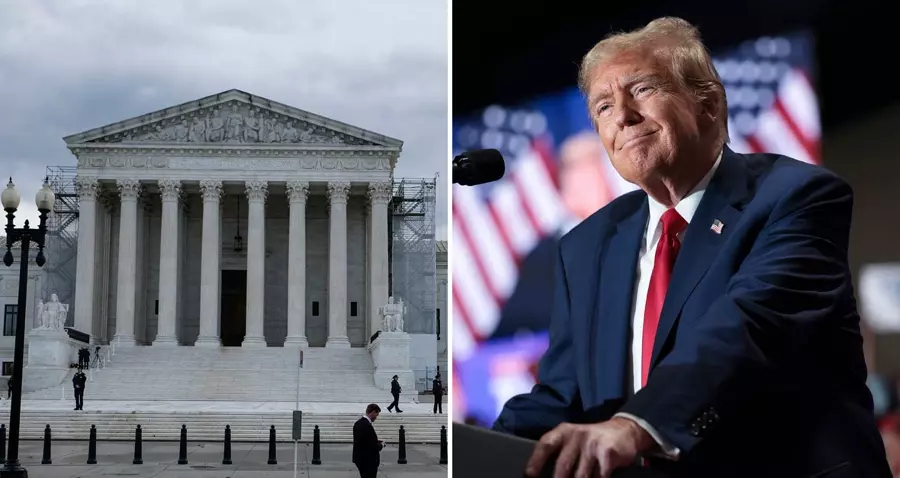The United States Supreme Court recently ruled on another key case concerning the widespread use of mail-in ballots ahead of the 2024 election. In a decision that has drawn attention, the court declined to provide a reason for its dismissal of a case alleging a “crisis of confidence” regarding Oregon’s longstanding mail-in ballot system. This system was established in 2000 after residents of the state voted to approve it in a referendum in 1998.
The plaintiffs argued that every phantom vote cast disenfranchised a legitimate vote, and they sought to have the court dismantle Oregon’s mail-in voting system. The district court dismissed the lawsuit last summer, and the plaintiffs then appealed to the 9th U.S. Circuit Court of Appeals, which also dismissed the case in December.
In their dismissal, the three-judge panel noted that the plaintiffs had not demonstrated any specific instances of fraudulent manipulation of Oregon elections through its vote-by-mail or computerized tabulation systems. The judges also observed that the plaintiffs themselves could not confirm whether Oregon’s elections were being manipulated in any way, and their grievances were deemed speculative.
Meanwhile, a significant ruling was handed down by the U.S. 3rd Circuit Court of Appeals last month which could have a substantial impact on election outcomes in Pennsylvania, a key swing state, as well as other battleground states. This decision represents a notable victory for Republicans who have been advocating for voter integrity measures.
The court overruled a federal district court’s order and ruled in favor of the Republican National Committee (RNC) concerning signature verification for mail-in voting in Pennsylvania, which is considered a crucial state. The case focused on whether mail-in ballots with an incorrect or no date at all under the voter’s signature should be counted.
Democrats argued that the Materiality Provision, as outlined in Section (a)(2)(B) of the Civil Rights Act of 1964, should apply, thus asserting that the ballots should be counted. The Materiality Provision prohibits denial of the right to vote due to an “error or omission” on paperwork related to any application, registration, or other act requisite to voting if the mistake is “not material in determining whether [an] individual is qualified” to vote.
In response, the RNC maintained that enforcing the date requirement on ballots would not impinge on the right to vote because the Materiality Provision “only prohibits immaterial requirements affecting the qualification and registration of a voter,” not other, more specific requirements for casting a ballot. All three judges on the appeals court were appointed by Democrats; two of them agreed with the RNC’s position, writing in part.
States have separate bodies of rules for separate stages of the voting process. One stage, voter qualification, deals with who votes. To register and thus be authorized to vote, applicants must follow prescribed steps and meet certain requirements. It’s like obtaining a license to drive. Another stage deals with how ballots are cast by those previously authorized to vote, which is governed by a different set of rules. To cast a ballot that is valid and will be counted, all qualified voters must abide by certain requirements, just like those authorized to drive must obey the State’s traffic laws like everyone else.
The Materiality Provision is an important federal overlay on state election requirements during the “who” stage: voter qualification. It prohibits States from denying an applicant the right to vote based on an error or omission in paperwork involving his application if that mistake is immaterial in determining whether he is qualified to vote. That is, it is triggered when conduct or laws restrict who may vote. But it leaves it to the States to decide how qualified voters must cast a valid ballot. Pennsylvania has made one such rule—the date requirement—mandatory. The federal Materiality Provision, in our view, does not interfere.
RNC Chairman Michael Whatley responded to the ruling by stating, “This is a crucial victory for election integrity and voter confidence in the Keystone State and nationwide. Pennsylvanians deserve to feel confident in the security of their mail ballots, and this 3rd Circuit ruling roundly rejects unlawful left-wing attempts to count undated or incorrectly dated mail ballots. Republicans will continue to fight and win for election integrity in courts across the country ahead of the 2024 election.




